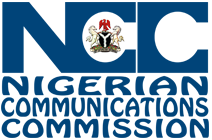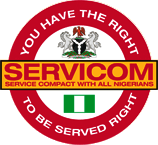 |
NIGERIAN COMMUNICATIONS COMMISSION
|
 |
INTRODUCTION
The Technical Standard and Network Integrity Department is structured into four (4) units namely;
- Quality of Service/Interconnect Network Monitoring (QoS/INM)
- Fixed Network and Converged Services (FNCS)
- Wireless Network (WN)
- Next Generation and Future Networks
The Key function of the Department is to provide technical regulation of the communications industry in Nigeria and conduct Research on New and Emerging Technologies.
LOCATION
Fifth (5th) Floor,
Nigerian Communications Commission Headquarters,
Plot 423 Aguiyi Ironsi Street,
Maitama, Abuja.
HEAD OF DEPARTMENT
Engr. Bako Wakil, FNSE, FNIEE
Tel: 09-4617285; 09-4617000
Email:
MISSION STATEMENT
To Develop and review Technical Standards and monitor operators Network Integrity and performance in line with industry best practices.
VISION STATEMENT
Our shared vision is "A dynamic regulatory environment that ensures universal access to affordable and equitable service and supports the nation’s economic growth."
DETAILS OF STAKEHOLDERS
Some of the major stakeholders are as follows:
- Federal Ministry of Communications and Digital Economy
- International Telecommunications Union (ITU)
- Mobile Network Operators
- Interconnect Clearing House Licensees
- Internet Service Providers
- Collocation Service Providers
- Metropolitan Fiber Cable Licensees
- Telecommunication equipment Manufacturers
- Private Networks Links (PNL) Licensees.
- Value Added Service (VAS) Licensees.
- Collocation Service providers
- Value Added Service (VAS-AGGREGATORS) Licensees.
- African Telecommunications union (ATU)
- West African Telecommunications Regulatory Assembly (WATRA)
SERVICOM
- Improve Stakeholder Satisfaction
- Promote Universal Access
- Improve Competition
- Improve Quality of Service
- Improve Resource Management
- Increase Funding
- Improve Operational Efficiency
- Improve Regulatory Framework
- Improve Stakeholder Relationships and Collaboration
SERVICE DELIVERY
- Effective Internal/External Customer Service.
- Monitor effective Leadership and facilitate team building.
- Problem Solving.
- Resolving inter-departmental crisis.
- Enhance work place diplomacy.
- Establish a feedback platform for ease of doing business.
- Tracking and reporting performance.
- Accountability and corruption monitoring and prevention.
In discharging the above services the department should promptly attends to operator’s complaints and staff needs and public enquiries within five to ten working days depending on the nature of complaint. The Commission’s Timeline for response to internal memos should not exceed 24 hours.
In order to effectively monitor the Commission’s compliance and implementation of the Executive order 001 (Ease of doing Business), a checklist would be developed to ensure that all departments adhere to the stipulated timelines.
The department should ensure that at all times that services are discharged in consonance with the Commission’s core values of integrity, excellence, professionalism responsiveness and innovation.
GRIEVANCE REDRESS MECHANISM
Stakeholders are enjoined to seek redress by calling or preferably writing to the Nodal Officer whose details are listed belo;.
Abdullahi Auwalu Kwalli,
Interconnect and Network Monitoring Unit Room 520,
Department of Technical Standard and Network Integrity,
Nigerian Communications Commission Headquarters,
Plot 423 Aguiyi Ironsi Street,
Maitama, Abuja.
Tel: 09-4617294; 09-4617000
Email:
CUSTOMERS' OBLIGATION/EXPECTATIONS FROM DEPARTMENT
To help the Department discharge its duties, customers are expected to:
- Be fully informed of the Department’s Servicom Charter.
- Follow the laid down procedures/channels for obtaining required services and information.
- Request/apply in good time to ensure necessary processing.
LIMITATIONS
- Budget constraints can hinder the achievement of the projects listed above
- Lack of timely approval by management
- Inter-departmental cooperation.
STAKEHOLDERS PARTICIPATION
The Department meets with network operators and industry stakeholders as follows:
- Monthly engagement of operators on QoS and POI issues..
- Quarterly Industry Working Group on QoS and POI related matters.
- Quarterly Industry Working Group Meetings on Short Codes.
- Bi-Annual meetings with stakeholders on Value Added Services.
- Type Approval Industry Working Group meetings.
- Type Approval sensitization meetings.
- Meeting with operators to update them on some ITU-T meetings resolutions.
- Organize Broadband engagement forum.
- Resolution of interconnect disputes between operators.
- Stakeholders Consultative forum on the New and Emerging telecommunication services.
- Bi-annual EMF Radiation Measurement Exercise.
The meeting provides opportunity to rub minds with operators and stakeholders on how to overcome some issues facing the industry.
CONCLUSION
The Department improves Operational Efficiency by adhering to our Departmental SLAs that will govern service delivery to internal and external stakeholders. Also the Department improves Regulatory Framework through benchmarking and adoption of International Standards and Industry Best Practices taking cognizance of the unique Nigerian communications industry environment.